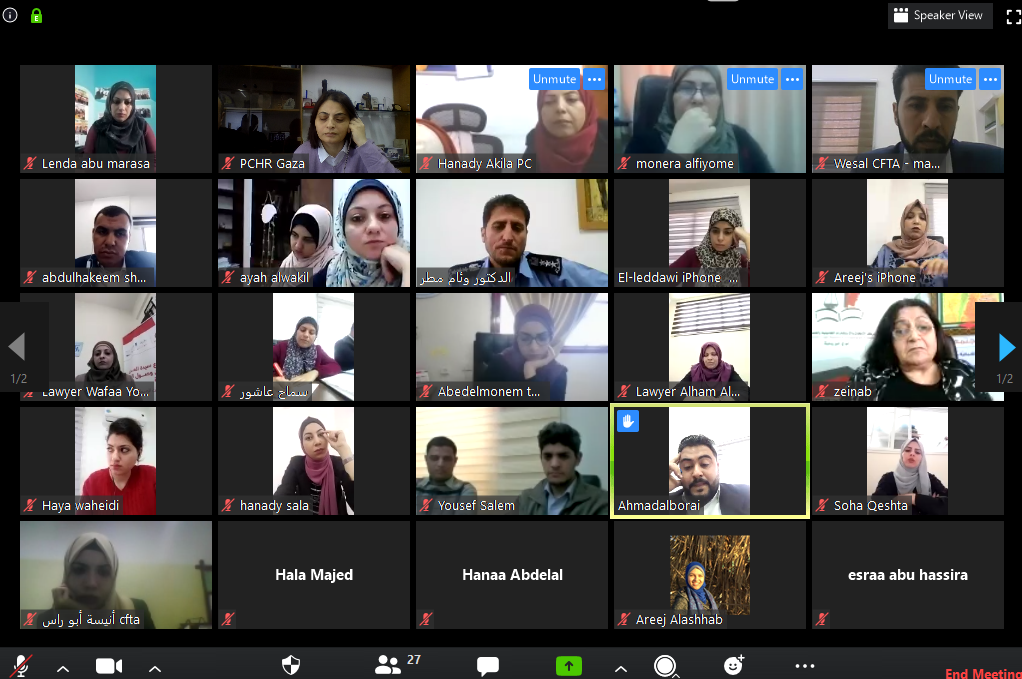
Ref: 19/2020
 On Tuesday, 28 April 2020, the Women’s Unit at the Palestinian Centre for Human Rights (PCHR) organized an online panel discussion via Zoom to discuss the work mechanisms of judicial police in Sharia’ Courts in the state of emergency. The panel discussion was attended by representatives of women institutions, human rights organizations, the Palestinian Bar Association ,and the Sharia Bar Association.
On Tuesday, 28 April 2020, the Women’s Unit at the Palestinian Centre for Human Rights (PCHR) organized an online panel discussion via Zoom to discuss the work mechanisms of judicial police in Sharia’ Courts in the state of emergency. The panel discussion was attended by representatives of women institutions, human rights organizations, the Palestinian Bar Association ,and the Sharia Bar Association.
The panel was opened by Mona al-Shawa, Director of PCHR’s Women’s Unit, who welcomed Dr. Weam Mater, Director General of the Judicial Police, and the participants; and praised judicial police’s efforts and its cooperation with Sharia courts and other institutions to enhance women’s access to justice.
Al-Shawa pointed out that this panel discussion is a continuation of the previous one in which PCHR hosted Sheikh Dr. Hassan al-Jojo, Head of Higher Sharia Court Council, to discuss the merits of Administrative Decision No. 6/2020 issued on 20 April 2020, which resumes the work in Sharia’ Courts at this time. Al-Jojo clarified in the previous panel that the judicial police has a full readiness to carry out its duties in the state of emergency.
Al-Shawa clarified that the panel discussion aims to get a better understanding of the judicial police’s role in implementing some rulings issued by Sharia courts, especially during the emergency period. She added that the panel also aims to open dialogue between institutions that support women, lawyers in Sharia Courts and the judicial police to identify the obstacles they encountered at work during this period.
Dr. Weam Mater said that the judicial police resumed their work, because several complaints and appeals were received during the emergency period such as expenses, wages, hosting, watching, and custody.
With regard to organizing the judicial police’s work during the emergency period, Mater emphasized that the judicial police and Public Relations Department resumed their work to resolve many disputes amicably or the ruling-execution will be by force
Mater clarified that importance of the judicial police work and great responsibilities its encounter in the state of emergency.
Participants raised many questions regarding implementation, and the work mechanism of Sharia courts’ notifications during the emergency period. They also discussed some of the obstacles they encountered at work during this period and Dr. al-Jojo responded to all their queries
At the end of the discussion, participants praised the importance of judicial police’s work in the state of emergency, and recommended the following:
– The importance of continuing the judicial police’s work in the state of emergency.
-The need for continuous networking and communication between women institutions, human rights organizations and judicial police to enhance women’s access to justice.
– The importance of holding such online meetings, which include dialogue and discussion, to enhance work between institutions and judicial police.